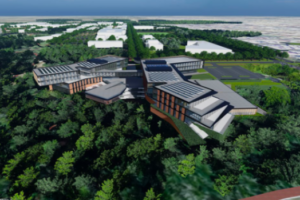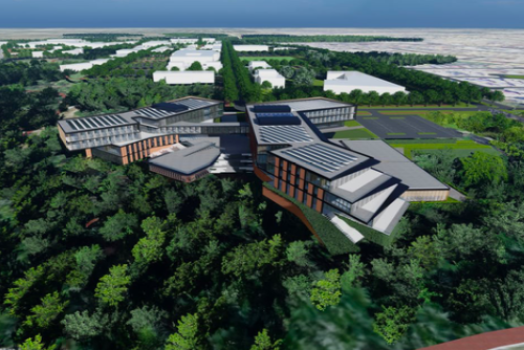America’s fire infrastructure is very old, and government leaders are trying to remedy that situation. Approximately 20,000 U.S. fire stations are over four decades old. That is an alarming statistic because the estimated useful life of a police or fire station is between 20 and 50 years. That means thousands of fire stations in America are already or will soon be at the end of their anticipated life expectancy. It also means that most are no longer operationally sufficient.
Over the past 15 years, the percentage of fire stations over 40 years old has increased by 11% to a total of 43%. The current cost of upgrading the country’s fire response infrastructure to an acceptable standard has been projected to cost about $70 billion.
First responders are needed at the scene of emergencies as quickly as humanly possible, but their speed depends totally on the state of their infrastructure. The response time for emergency medical services should be four minutes or less for 90% of incidents. Firefighters, for example, are expected to leave the station 80 seconds or less after an alarm sounds. Having the necessary facility arrangement of equipment and other support makes that possible – or not.
Funding for fire control infrastructure is not as available nationally as funding is for other types of critical necessities. Still, local government officials are working hard to find the required funding.
The City Council of Mountain View, California, has announced the design phase of a new $200 million public safety facility designed to house police and fire personnel. The new facility will replace a 43-year-old building that is far too small and is not compliant with seismic safety requirements. The new public safety center will be a three-story, 75,000-square-foot facility with a multipurpose auditorium. The site will have a secure parking garage, the top level of which will be an enclosed 15-lane shooting range. The facility will also have K9 training areas and a communications tower. Construction is expected to begin in 2025.

Photo courtesy of the University of North Texas at Dallas.
The University of North Texas has plans for a new police academy that will be built on the university’s Dallas campus. The $152 million facility will be located on 5 acres and include classroom space, fitness facilities and virtual reality training technology. It will house the police academy and a research & policy institute. The project is in the design phase, and an RFQ for architectural services is being developed. A solicitation process will begin as a construction launch is planned for 2025.
The city of Allentown, Pennsylvania, will rehabilitate and expand its police headquarters at an estimated cost of between $28 million and $37 million. A recent feasibility study found significant issues with the existing police headquarters. The facility’s American Disabilities Act (ADA) compliance must be upgraded, and the heating system needs attention. Additionally, the secure entryway for the station’s holding rooms will be enhanced for safety. Rehabilitation work will be required, and the building will be expanded. The city will also rebuild a pedestrian bridge that connects the parking garage to the city hall plaza, as well as construct a bridge for police use that connects the garage and the new station. Overall, the project will double the square footage of the existing facility. Design work is underway for the renovation and expansion, and a construction launch is planned for early 2025.
City officials in Tulsa, Oklahoma, will be responsible for overseeing a project to build a public safety center. The project is an investment into the city’s emergency response infrastructure. The plan is to consolidate the city’s police and fire departments along with the emergency management and medical divisions of first responders. The co-location will enhance collaboration, efficiency and service delivery. With a total budget of $45.5 million, the project will be funded by a General Obligation Bond that has been approved by voters. The building to be renovated into a public safety complex that consists of 288,000 square feet, which will include conference rooms, a cafeteria, space for physical therapy and other public safety activities.
The city of Bath in Maine will soon have a new fire station. An owner’s representative has been selected to manage the project, and the design phase has started. At a cost of $16.5 million, the city will construct a station to replace the current fire station built in 1957. The new facility will be approximately 24,000 square feet and feature apparatus bays with drive-through capability, a training tower, and individuals.
As the United States faces the critical challenge of aging public safety infrastructure, the efforts by various cities to upgrade and modernize facilities are commendable yet represent just the beginning of a nationwide imperative. With nearly half of America’s fire stations and public safety buildings beyond their intended life span, the projected $70 billion required for upgrades, and the need for enhanced public safety, underscores the size of a marketplace that should not be ignored.







